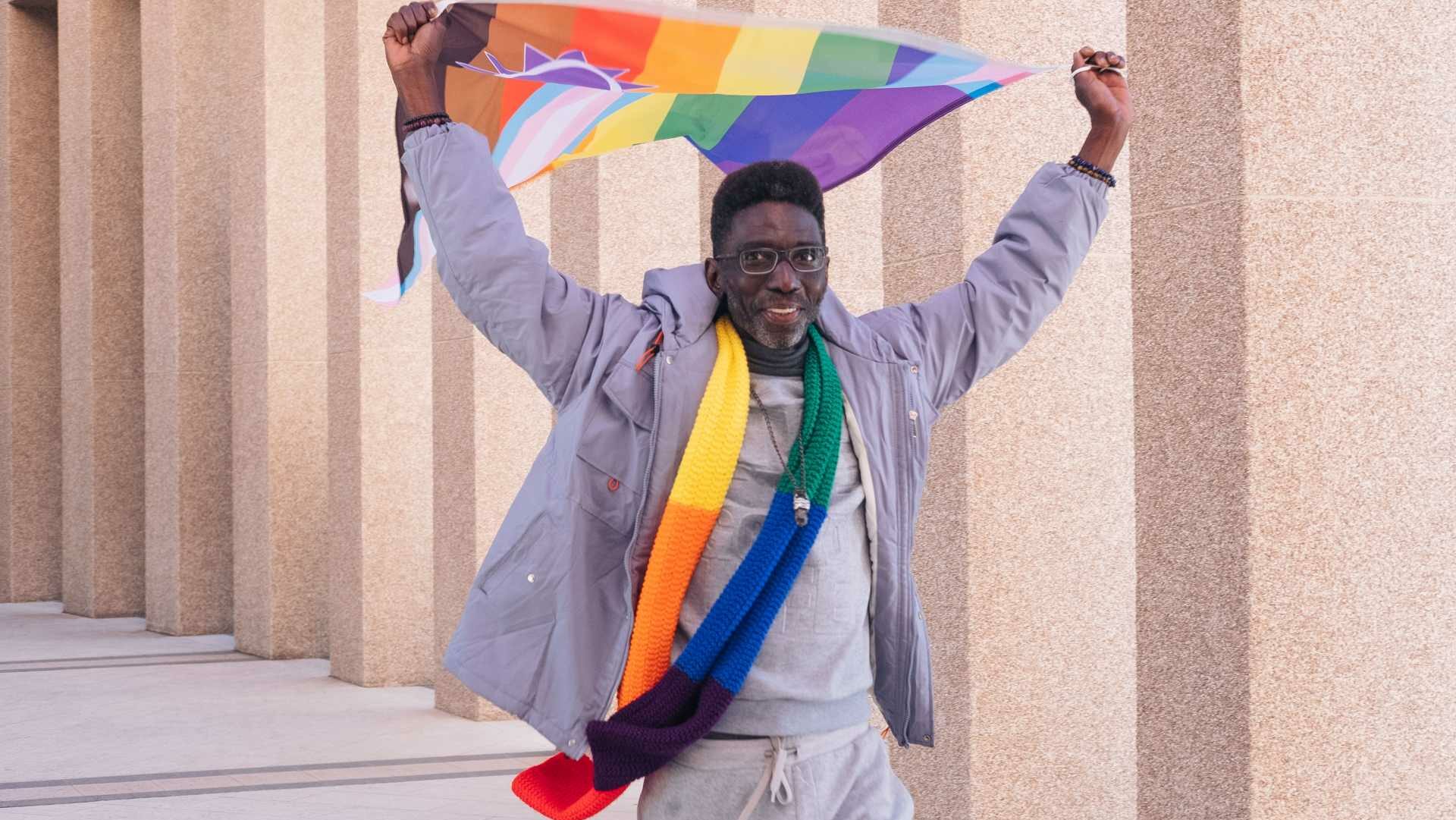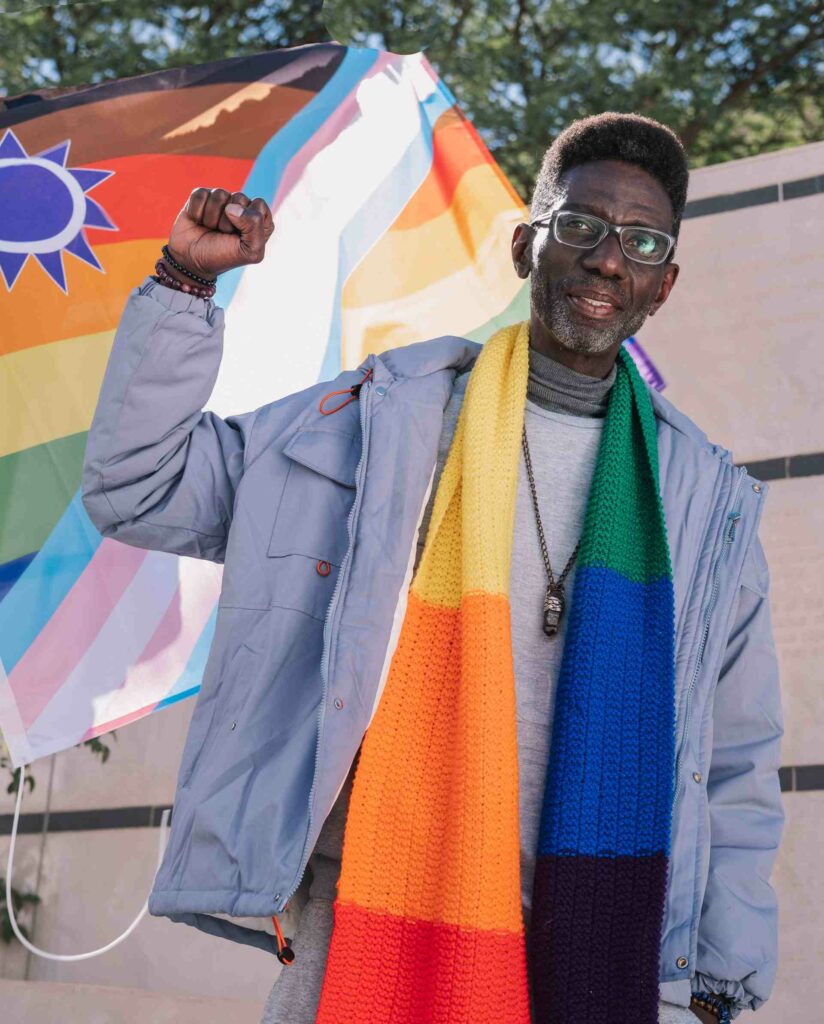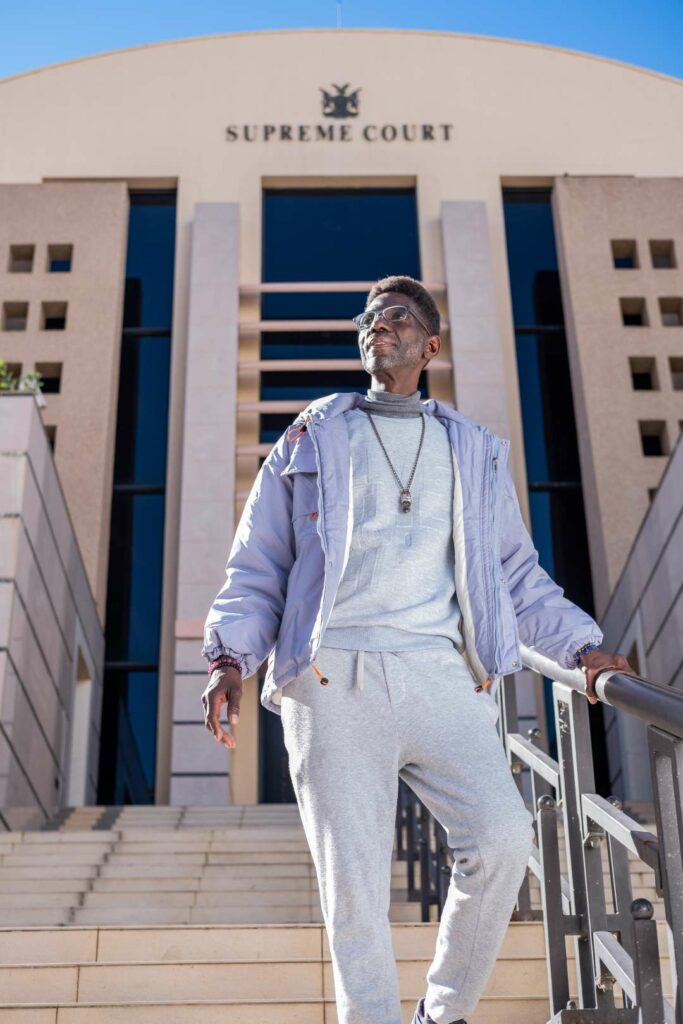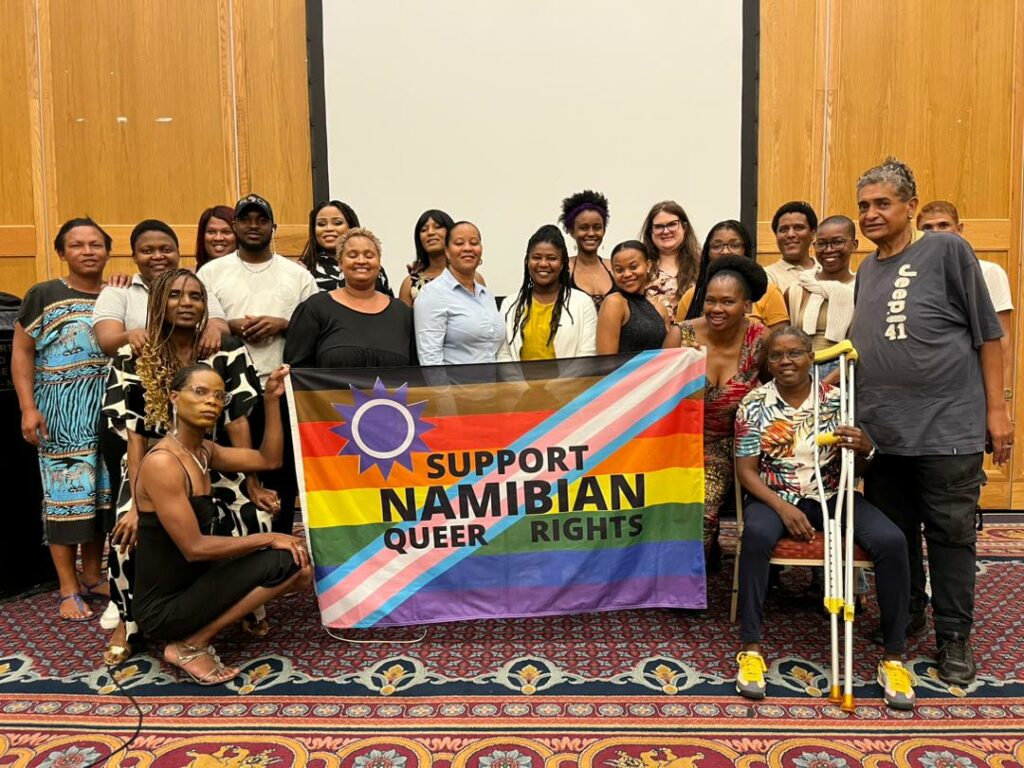Namibian LGBTQ+ activist Friedel Dausab on colonial-era law victory: ‘I was waiting for 25 years to happen’ (EXCLUSIVE)
Dausab scored a major win by getting Namibia's colonial-era laws impacting gay men overturned last year. But, as the leader of the Third Sector category of Attitude 101, empowered by Bentley says here, there's still much work to be done.

On 21 June 2024, Friedel Dausab, a gay rights activist from Tsumeb, Namibia, scored a big victory when the country’s High Court overturned colonial-era laws that penalised ‘sodomy’ and ‘unnatural sexual offences’.
Dausab, leader of the Third Sector category of Attitude 101, empowered by Bentley (see here for the full list of the 2025 Attitude 101 Third Sector category honourees) had gone to the High Court to fight for the laws to be declared unconstitutional, saying that they discriminated against gay men in Namibia. Ruling in Dausab’s favour, the Namibian High Court stated that criminalisation of same-sex relations between consenting men “is outweighed by the harmful and prejudicial impact it has on gay men and that its retention in our law is thus not reasonably justifiable in a democratic society”. In finding the laws — whose origins date back nearly 500 years to England’s 1533 Buggery Act — unconstitutional, the court said, “The finding of unconstitutionality leads to only one conclusion, namely to declare the impugned laws invalid.”
“It was amazing,” says Dausab, as he reflects on that historic moment. “It was also exhilarating because it’s a moment that for me personally, I was waiting for 25 years to happen, and [it’s] 25 years since I started focusing on one of the primary factors that led to an untamed HIV epidemic among gay men, which was a criminalisation of anal sex between two men in Namibia.”
Dausab’s fight goes back to 1999, when he was diagnosed as HIV-positive while working as a flight attendant for Air Namibia. He was 25. Describing himself as a “happily partying fashionista” pre-diagnosis, Dausab says the news came as “quite a shock”. He quit flying, and at 29 took a two-year working holiday in the UK. He and some friends got jobs at London’s famous gay sauna the Pleasuredrome, where he witnessed a “heartbreaking” reality for a lot of gay men. Outwardly confident and social, when stripped down to nothing but a towel, some men revealed more than just skin — they were lonely. Dausab could see some of the drivers behind the transmission of HIV: shame, stigma, homophobia and substance abuse. “That’s where I made up my mind: I really wanted to work with our community to ensure that people are not so lonely and running away from stigma, discrimination and violence.”

Returning to Namibia, he joined the charity IBIS/the World University Service, which was involved in sexual health programmes for LGBTQ+ people. One of its missions was to change the language used to discuss HIV. For example, rather than being ‘infected’, people were described as ‘living with HIV’. Dausab also helped set up support groups to protect people’s mental health. From there, he moved on to roles with the Positive Vibes Trust and the Rainbow Project, before becoming executive director of OutRight Namibia, a national LGBTQ+ organisation.
Throughout his work he saw examples of how legislation, including the Namibian laws banning same-sex relations, impacted those living with HIV. In 2021, Dausab took part in an effort to repeal laws that Namibians thought obsolete, including those regarding ‘sodomy’ and ‘unnatural sexual offences’. He then decided to take the legal route. After filing his case in June 2022, he attended a hearing in October 2023, before getting the history-making verdict described above last June.
But the fight is not yet over. In July, the Namibian government appealed the decision, meaning that the country’s Supreme Court will now rule on the matter. Asked whether he was expecting an appeal if he won his case, Dausab explains that he too would have appealed had he lost. Dausab also believes that a Supreme Court decision could be useful, as the Namibian government has asked for clarification on whether sex should be interpreted as sexual orientation. “It might be an opportunity for the Supreme Court to underline the human rights of all Namibians, including LGBT Namibians. An answer could be a broad stroke for equal rights in all spheres of life. There should be no unfair discrimination on grounds of sexual orientation,” he tells me.

Campaigners say that the number of convictions made under the offences in Namibia was low, but as Dausab points out, the threat of prosecution means that many LGBTQ+ people have lived their entire lives looking over their shoulders.
Predictably, the 2024 verdict drew mixed responses. While some hailed Dausab as a ‘freedom fighter’, a title he seems ambivalent about, others condemned the outcome. Dausab is similarly unperturbed by this. “There is always a small section of society that is outraged from a cultural, traditional, or religious perspective [and] very violently loud on social media,” he says.
Having been an outspoken advocate for nearly 30 years now, Dausab is used to receiving flack personally and boasts a thick skin. Although he has not experienced much homophobic abuse since last June’s verdict, he is taking increased safety measures such as avoiding public transport, citing incidents of anti-LGBTQ+ violence as justification.
When it comes to acceptance for LGBTQ+ people in Namibia, there has been an unfortunate decline of late. Dausab mentions the legislation outlawing same-sex marriage in Namibia that has been enacted a day before we speak in January this year, saying such legislation “creates a social acceptance or justification of stigma. That it’s OK to treat you badly because there is a law that’s criminalising you. You’re not wanted.”

And according to the tracker Equaldex, in a 2023 poll asking people whether they’d accept having an LGBTQ+ neighbour or not, only 49.4 per cent said yes — down from 64 per cent two years earlier. Dausab attributes this decline to foreign affairs, naming President Trump and Project 2025, a policy document from the right-wing American think tank The Heritage Foundation, specifically. Project 2025 advocates abandoning diversity standards, as well as removing protections for LGBTQ+ people, among many other terrible plans. These ideas, Dausab says, are now being imported into Africa. As a born-again Christian, Dausab sees this as a bastardisation of the religion. And while countries like Uganda introduce new, strict anti-LGBTQ+ laws, Dausab is fully aware that his win is by no means the end of his fight.
“There’s still a path to go,” he tells Attitude. He foresees a potential global rollback of democracy that will affect not just LGBTQ+ people, but women, children and more. He lays down a challenge to activists everywhere: “We should probably, as activists, start looking beyond our silos. We need to look out for environmentalists, people in education and other fields, and start seeing a way in which we can start to solve the whole picture, because the enemy is quite strategic and very well resourced. That’s what’s left to do.”

This feature is taken from issue 363 of Attitude magazine, available to order here or alongside 15 years of back issues on the Attitude app.
